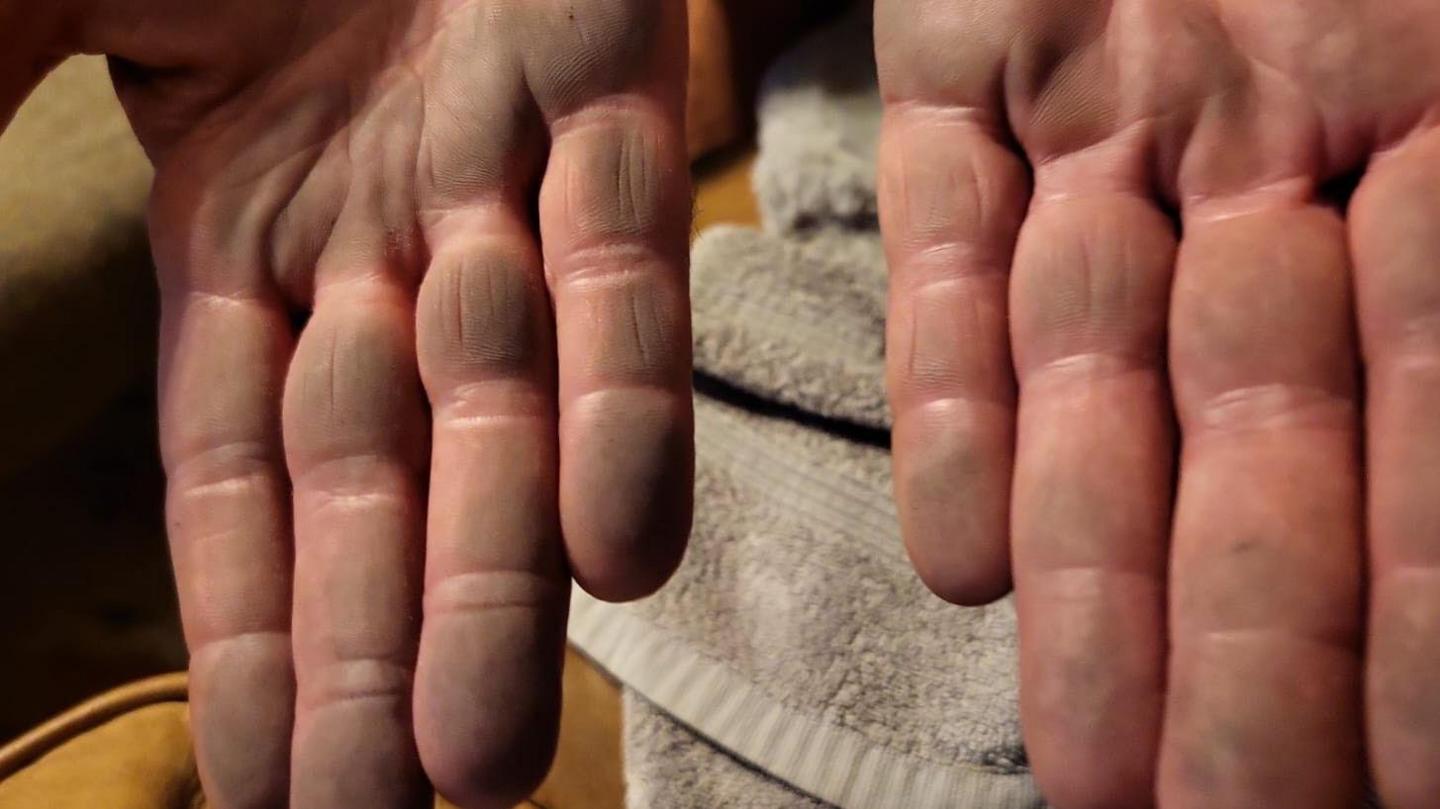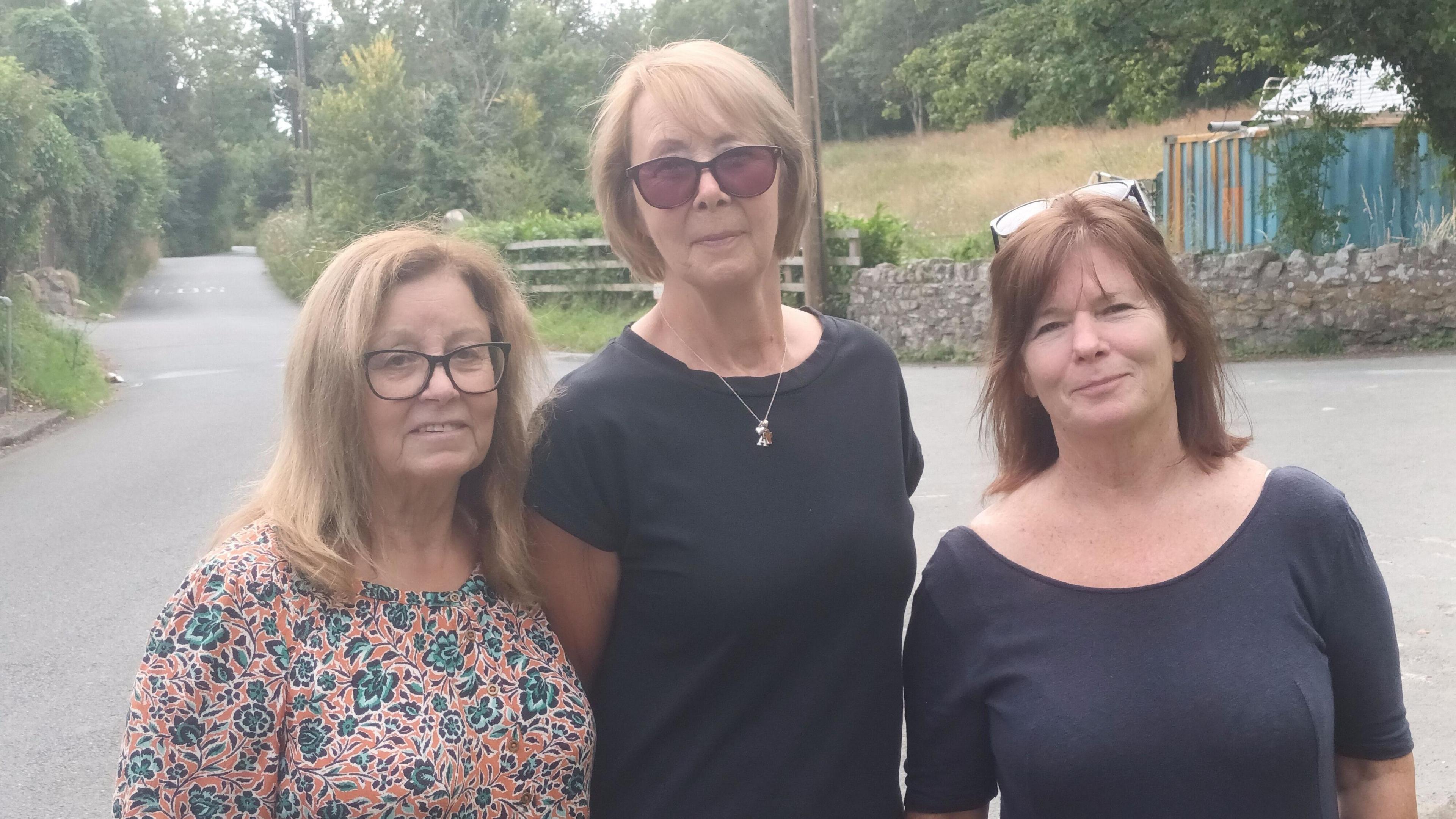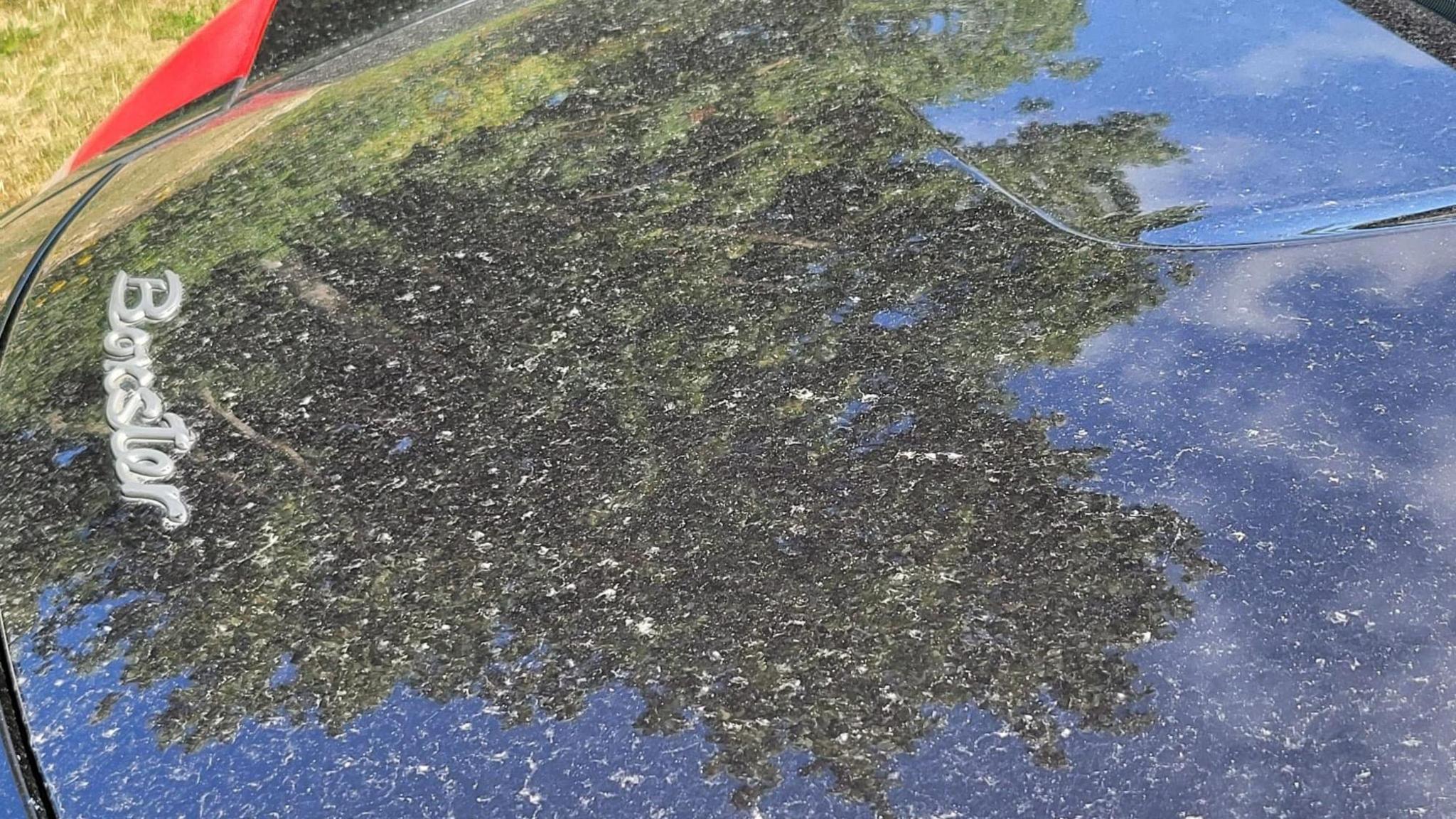'Filthy' quarry dust covers village homes and cars

Dust from Aberthaw Quarry covered property and possessions in Vale of Glamorgan
- Published
Dust blown in from a quarry has covered homes and possessions and caused sore eyes and difficulties with breathing, residents of a south Wales community say.
Pulverized fuel ash (PFA) blew in to the villages of Fonmon and Font-y-Gary, Vale of Glamorgan, from nearby Aberthaw Quarry after a period of dry and windy weather.
Residents told the Local Democracy Reporting Service that bedroom window sills and floors were covered in "filthy" thick black dust and reported feeling like they had sand paper in their eyes.
Energy company RWE, which is carrying out works to clean the site and remove the PFA, apologised and said it was "quickly and diligently" trying to address the issue.
Will steel town Port Talbot now have cleaner air?
- Published30 September 2024
How dangerous dust is putting farm workers' lives at risk
- Published15 May
Welsh council body faces £5.25m power station pay-out
- Published5 June
Natural Resources Wales (NRW) said it was investigating the works to make sure proper controls were put in place.
"I noticed that the soles of our feet… were absolutely black," said local resident Charlotte Troth, as she recalled one of the worst incidents of ash being blown into Fonmon recently.
"[They were] filthy black and I'd only walked inside my house without my shoes on.
"Then I started looking all over the house and my two-year old daughter's bedroom window sills were covered in thick black dust," she said, adding it had been warm that day and the windows had been open.

Denise Martlew, Anne Sloman and Denise Cooper (left to right) say they have suffered from the effects of the dust
Ms Troth said the whole house was covered in thick black dust.
"We went into panic mode… [and] just started deep cleaning everything," she said.
"My eyes were feeling gritty and when I woke up in the morning it was like having sand paper in my eyes… and they felt really dry."
The residents recalled three days in particular when the dust clouds were at their worst: 4 July, 8 July and 14 July.
But residents said dust had been on their property and possessions most days, with it returning to the surface of cars, patios and even kitchen floors hours after cleaning it off.
Fonmon resident Denise Cooper compared the dust to a mist "from one end from the castle right the way down to past Fonmon cross roads".
"That's happened three times, this mist… but in terms of dust levels in our homes [it's] every day."
Another resident of Fonmon, Denise Martlew, said: "I've had to keep the windows and doors closed obviously because I can't breathe it in.
"You open it for 10 minutes and the dust, it comes in," she said.
"We shouldn't have to live like this in this day and age.
"We are not living on a coal site, but we're experiencing the same effects."
Denise Cooper said she first complained about the dust on 7July, and claimed it had caused her to develop a chest infection.
"I couldn't breathe. My garden furniture, my patio. Absolutely black," she said.

The dust returned to the surface of cars hours after cleaning it off, residents said
RWE said the properties of PFA were "well known" and classified as non-hazardous, adding "decades of research and ash re-use confirm that PFA is stable and non-toxic".
It said the activity at Aberthaw Quarry, which they have contracted Walters UK to undertake, involved essential works as part of the company's obligation to remediate and transform the site for future benefit and agricultural use.
The quarry was used as a site to transport and store PFA from Aberthaw Power Station, Wales' last coal-fired power station, which closed in 2020.
Demolition of the former power station is expected to be completed by 2027, but there is also a 17 million tonne mound of compacted waste ash on site which will take years to be removed and processed.
Anne Sloman, who lives in Font-y-Gary, is also concerned about the future of the ash mound.
She added: "[We're] worried to the extent that possibly next year we'll put our house up and move.
"We've been there 27 years, love the spot, but this is a huge impact on our lives."
RWE said the recent heat wave and strong winds, combined with the necessary removal of vegetation prior to reprofiling works, had contributed to unintended dust emissions from the site.
"RWE has been working with its contractor, Walters UK, to minimise local disruption through dust suppression measures, such as the use of water bowsers and halting works when necessary," a spokesperson said.
Vale of Glamorgan Council was approached for a comment.